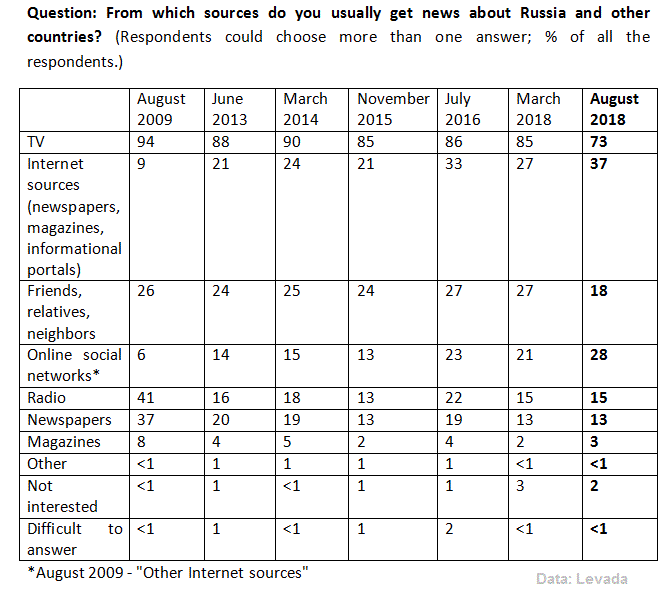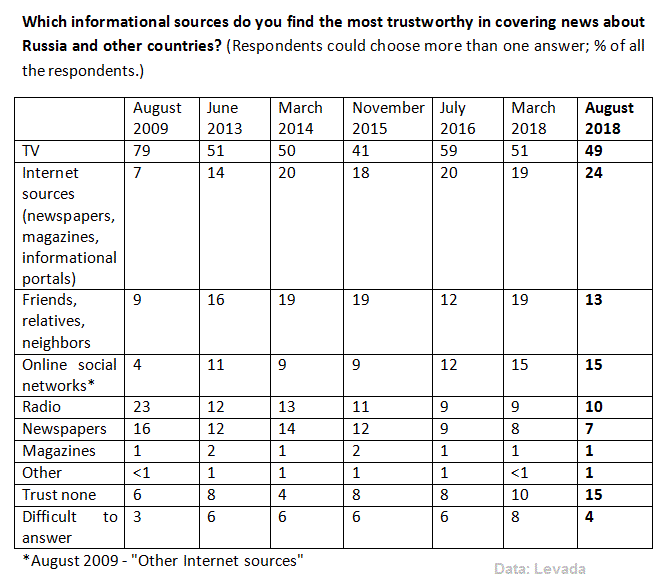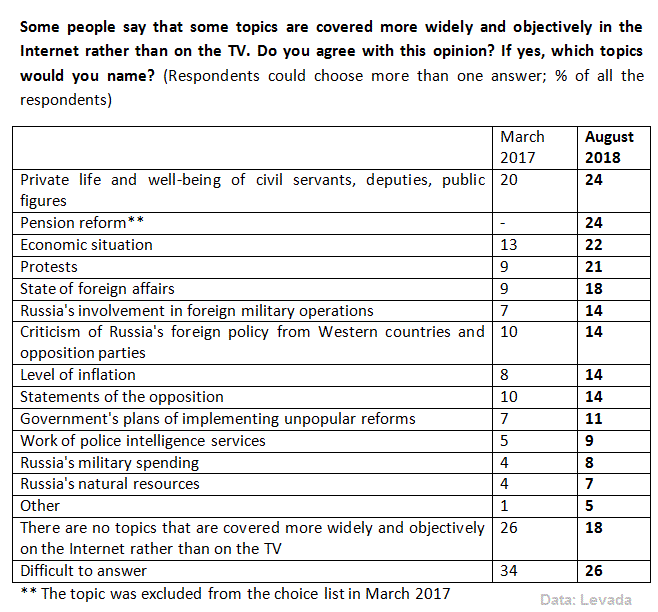

The rise of Internet news in Russia
Social networks and Internet are becoming more popular as the means of getting information among Russians, the poll by Levada discovered.
- TV remains the primary source of news for residents of Russia, except for the youngsters (age 18-24). The young generation uses both TV and Internet (54% and 49% respectively, August 2018). The older generation uses mostly TV to get the news.
- Educated city residents use Internet and social networks as the source of news more often. Every second respondent with a degree as well as every second resident of Moscow reads the news on the Internet. But when we look at residents of smaller towns and people who didn’t go to college, the popularity of online sources is only around 25%.
- Even online users express more confidence in the news broadcasts on TV rather than in the publications on the Internet (42% vs. 32%, 40% vs. 34% accordingly). Respondents who do not use online sources show no confidence in Internet news at all.
- Internet and social network users mention the topics of “protests”, “economic situation”, and “pension reform” among those covered more actively online rather than on TV.
Popular topics: Pension reform, economic situation and protests
The so called ‘pension reform’ in Russia has been voted in by the parliament last week. The age of retirement is being raised from 60 to 65 for men and from 55 to 60 for women. The initial plan was to raise women’s pension age by 8 years instead of 5, as the final legislation prescribes, but the ladies were gifted 3 years of retirement benefits in the wake of protests.
Women in Russia currently retire 5 years earlier than men, although females live 10 years longer than males. In many regions of Russia the average life expectancy of Russian men is only 64 years. Country-wide, the life expectancy of males is 66 years, although the statistics promise it would increase substantially by 2034 when the plan to raise the age of retirement is fully implemented.
In other words, Russian men are likely to die within 1 year of their retirement, which will arrive at 65, as per new pension legislation stipulates. The pension reform was the most discussed topic online lately, while the government-controlled channels were trying to smooth out the unhappiness over raising of the age of retirement. Even speaking about the pension reform is considered somewhat disloyal to the state, unless it’s a praise for the upcoming changes.
A recent poll by All-Russian Public Opinion Research Centre in the survey what Russians read discovered that news are the most in-demand piece of information for Russians, who use both printed media and Internet to find out what is going on in their country and the rest of the world. In general, Russians tend to be interested in the countries like the USA, UK or France much more than residents of these countries know about Russia.

















From year to year information sources changing ,because of lack of data, which could provide exact sources nowadays people try to find more sourced and sustainable information links to be aware .However ,tv still popular ,but I think that television is popular within retired people ,consequently young generation trust more internet .